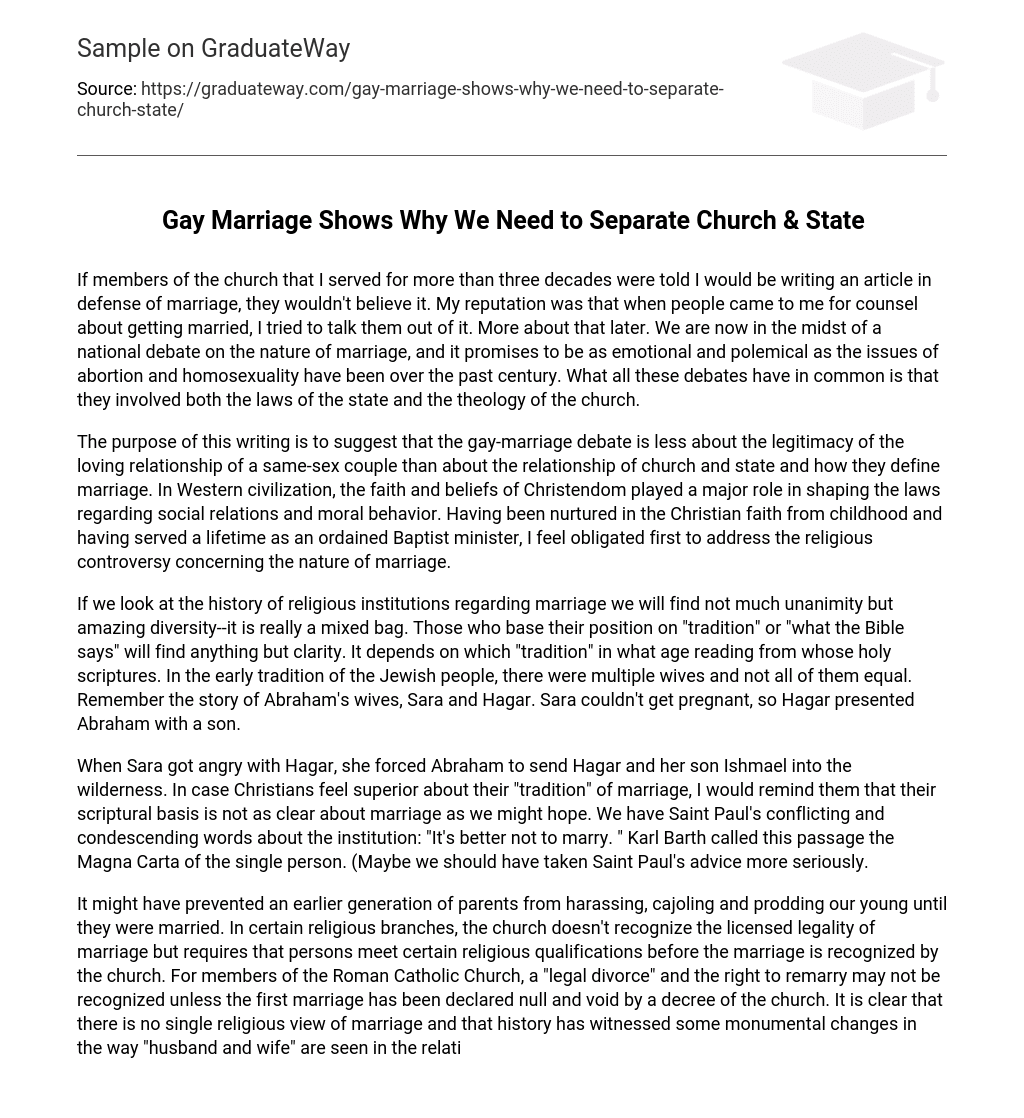If members of the church that I served for more than three decades were told I would be writing an article in defense of marriage, they wouldn’t believe it. My reputation was that when people came to me for counsel about getting married, I tried to talk them out of it. More about that later. We are now in the midst of a national debate on the nature of marriage, and it promises to be as emotional and polemical as the issues of abortion and homosexuality have been over the past century. What all these debates have in common is that they involved both the laws of the state and the theology of the church.
The purpose of this writing is to suggest that the gay-marriage debate is less about the legitimacy of the loving relationship of a same-sex couple than about the relationship of church and state and how they define marriage. In Western civilization, the faith and beliefs of Christendom played a major role in shaping the laws regarding social relations and moral behavior. Having been nurtured in the Christian faith from childhood and having served a lifetime as an ordained Baptist minister, I feel obligated first to address the religious controversy concerning the nature of marriage.
If we look at the history of religious institutions regarding marriage we will find not much unanimity but amazing diversity–it is really a mixed bag. Those who base their position on “tradition” or “what the Bible says” will find anything but clarity. It depends on which “tradition” in what age reading from whose holy scriptures. In the early tradition of the Jewish people, there were multiple wives and not all of them equal. Remember the story of Abraham’s wives, Sara and Hagar. Sara couldn’t get pregnant, so Hagar presented Abraham with a son.
When Sara got angry with Hagar, she forced Abraham to send Hagar and her son Ishmael into the wilderness. In case Christians feel superior about their “tradition” of marriage, I would remind them that their scriptural basis is not as clear about marriage as we might hope. We have Saint Paul’s conflicting and condescending words about the institution: “It’s better not to marry. ” Karl Barth called this passage the Magna Carta of the single person. (Maybe we should have taken Saint Paul’s advice more seriously.
It might have prevented an earlier generation of parents from harassing, cajoling and prodding our young until they were married. In certain religious branches, the church doesn’t recognize the licensed legality of marriage but requires that persons meet certain religious qualifications before the marriage is recognized by the church. For members of the Roman Catholic Church, a “legal divorce” and the right to remarry may not be recognized unless the first marriage has been declared null and void by a decree of the church. It is clear that there is no single religious view of marriage and that history has witnessed some monumental changes in the way “husband and wife” are seen in the relationship of marriage.





